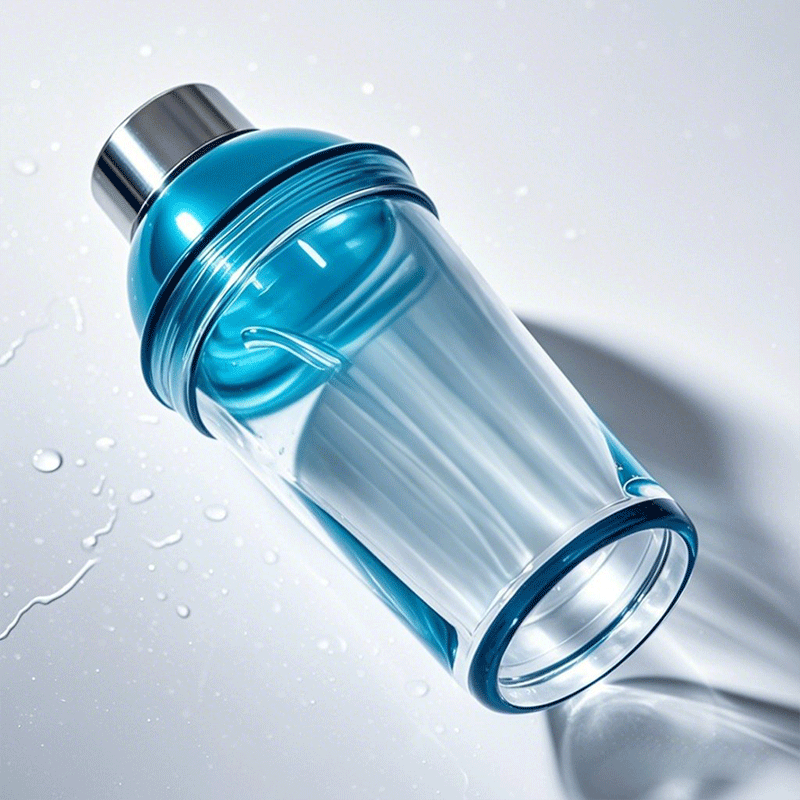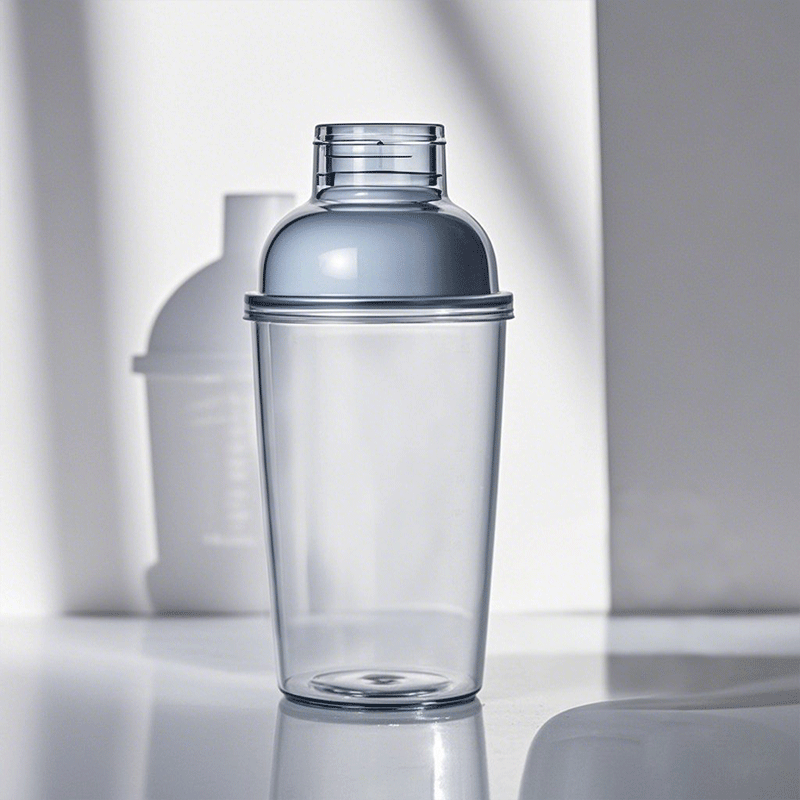Injection-molded water bottles are highly standardized products in modern industry, and every link of their production process must adhere to strict technical specifications. Based on industry - wide general technical standards and production practices, this article analyzes the core processes of injection - molded water bottle production from the dimensions of technical principles, parameter settings, and quality control, aiming to provide an objective reference for purchasers and technical practitioners.
The mold is the core carrier of the injection - molding process. Its design needs to take into account functionality, production efficiency, and cost control.
1.Optimization of the Parting Surface and Runner: Simulate the melt flow path through mold flow analysis software (such as Moldflow) to reduce the risk of leakage caused by weld lines. Research shows that for every 10% increase in the cross - sectional area of the runner, the filling time can be shortened by approximately 15%.
2.Thread Fit Precision: The stepped thread design, combined with a mold processing tolerance of 0.05mm, can meet the airtightness test standards (for example, maintaining a negative pressure of 0.08MPa for 30 seconds without leakage).
3.Temperature Equalization Design: The mold is equipped with multiple independent cooling circuits, and the temperature difference is controlled within ±2°C to avoid deformation problems caused by uneven shrinkage. This technology has been widely used in the production of food - grade water bottles.

The performance of plastic raw materials directly affects the final quality of the product and needs to pass multiple international certifications and laboratory tests.
Comparison of Mainstream Materials:
PP (Polypropylene): It can withstand temperatures up to 120°C, complies with FDA certification, and has an impact resistance strength of 86.8MPa, making it suitable for microwave - oven use.
PET: It has obvious lightweight advantages, but its temperature resistance is only 70°C, and it is mostly used for disposable water bottles.
Additive Management: The addition ratio of non - migratory color masterbatches and antioxidants (such as Irganox 1010) needs to be controlled between 0.5% - 1% to avoid affecting food safety.
Recycling Material Limitations: The industry generally requires that the addition ratio of recycled PP be ≤10% to ensure that material strength and hygiene indicators meet the standards.
The precise control of process parameters needs to be combined with equipment performance and material characteristics. Common technical indicators include:
Temperature Gradient Control:
The barrel is heated in sections (with a gradient increase from 180 - 240°C) to prevent material degradation.
The mold temperature is 20 - 60°C. If it is too high, the cooling time will be prolonged, affecting production efficiency.
Pressure and Speed Matching:
The injection pressure is 80 - 140MPa. For thin - walled parts, it needs to be increased to 180MPa to ensure complete filling.
The back pressure is 5 - 20MPa, which can effectively remove melt bubbles. However, if it is too high, the plasticizing efficiency will be reduced.
Production Cycle Control: The typical injection - molding cycle is 15 - 30 seconds, and the cooling time accounts for approximately 60% of it.

The post - processing after molding directly affects the user experience and product life and needs to follow quantifiable inspection standards.
Surface Treatment Technology:
The ultrasonic deburring technology can control the roughness of the cup mouth to Ra≤0.8μm.
The two - color injection - molding process realizes a double - layer structure through a rotating core mold, increasing the heat - insulation performance by 30%.
Sealing Performance Detection: The underwater pressure - testing method (maintaining a pressure of 0.1MPa for 1 minute) is used, and the factory - out qualification rate needs to be ≥99.5%.
Durability Testing: Simulate extreme scenarios such as dropping from a height of 1.2m and thermal cycling from - 20°C to 100°C to ensure a service life of ≥3 years.
1.Raw Material Inspection: Use a melt flow rate instrument (MFR) to test fluidity and an infrared spectrometer (FTIR) to verify the consistency of components.
2.Process Monitoring: Online sensors collect pressure and temperature data of the injection - molding machine in real - time. An alarm will be triggered if the fluctuation exceeds ±5%.
3.Environmental Protection Compliance: Pass certifications such as ROHS and REACH. The proportion of bio - based PP materials used is gradually increasing to 15%.
The current injection - molded water bottle process is facing two major transformations:
1.Intelligent Upgrading: The AI - based parameter optimization system can increase the yield by 5% - 8%, but the equipment transformation cost is relatively high.
2.Exploration of Environmental Protection: The industrial application of degradable additives (such as PLA) is still limited by the balance between cost and performance.
Explanation of Technical Data Sources
The process parameters involved in this article refer to "Plastic Water Bottle Molding Process" (GB/T 18006.1 - 202X), technical white papers of the Society of Plastics Engineers (SPE), and public reports of third - party testing institutions.
Copyright © 2023 :Worldbound Plasitc Products Co.Ltd